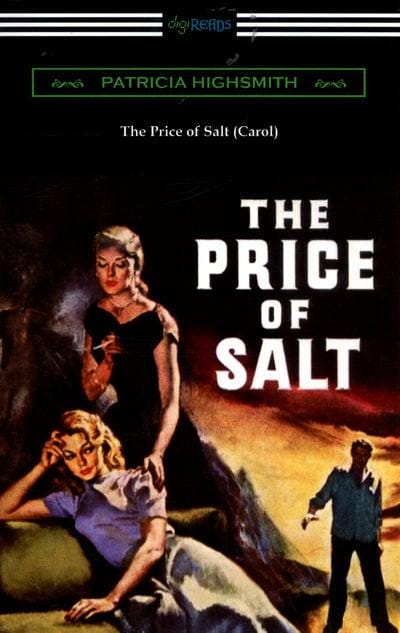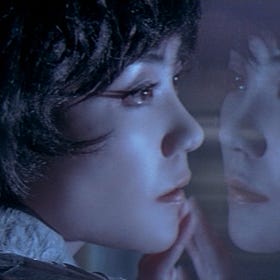More on Patricia Highsmith:
I love this cover for multitudinous reasons that I shan’t bother explaining.
The Price of Salt has an interesting distinction that I won’t mention because I do consider it a spoiler, though it may be the first thing you find out if you google it. And I’m not one who minds spoilers, but I also don’t want to be the reason some spoiler conscious person decides to skip this novel. Because that would be a shame.
While I described Strangers on a Train as a thriller structured like a romance, The Price of Salt is a romance structured like a thriller. And that is a fascinating concept to explore.
Because isn’t every romance worth having balanced on this tense knife edge? Your whole life depends not on a gun in hand or a weapon unseen but on the very next thing your lover or would-be lover says. The next gesture holds the weight of the world, the fate of your entire existence.
Will you still love me tomorrow?
I don’t think I’ve ever given much thought to this song but it launched into my skull as I began this review, and it captures something that I love about music from this time period: sad songs for happy people.
Just consider that question.
Will you still love me tomorrow?
If you’ve ever been in love, this thought could destroy your entire life. You may shatter to pieces just wondering if the person lying in bed beside you will still be in love with you when you wake up.
And it takes my breath away.
Because I have been on the otherside of that thought. I’ve possibly caused other people to wonder if I’d still be there, if I’d still love.
Long time readers may know already.
Wong Kar Wai - In the Mood for Love & 2046
A bit of housekeeping here first. This essay really got out of hand, in terms of length, and so the only way for you to read all of it is to click over to the website. It’ll take about an hour. Sorry about that. But before we hop into it, I have a few things to point you towards and one big thank you.
That question exists at the center of The Price of Salt. But a more important question starts the novel:
Will you love me?
While Strangers on a Train feels like it could have come out today, The Price of Salt is thoroughly of its time, which was the 1940s and 50s.
Therese is a lonely young woman temporarily working at a store during the Christmas season. An older woman named Carol comes in and they strike up a friendship.
A meet-cute, in the parlance of the romantic comedy.
Carol has a daughter and is going through a divorce but this doesn’t stop her and Therese from slowly falling into a relationship. One, at first, that carries the tension of a murder mystery because of all that’s at stake.
Therese has a boyfriend who wants to marry her and she thinks she probably should marry him, but…what about Carol? And is it even possible for her to love Carol? And even if she could admit it to herself…what would Carol think?
And for those who need a history lesson, I’ll just say that the stakes were quite high. Being gay in the 40s and 50s, even in New York, was a dangerous proposition. And we see how this plays out through the novel, with Carol potentially losing custody of her daughter because of what her husband believes is going on between Carol and Therese.
Looking back on this 70 years later, it can be easy to miss just how transgressive this novel must have been. Even from the premise alone. And we have characters throughout telling Therese that Carol is going to corrupt her, ruin her, etc etc et cetera.
When being gay was truly dangerous. When living gay and out loud took tremendous bravery. When many gay men and women ended up in heterosexual relationships because of fear.
But this is also why it’s worth reading and why, I think, structuring it and playing it out like a thriller makes so much sense.
In some ways, there’s nothing special about this novel. I mean, a gay romance in 2024 is mainstream to the point of being dull. I don’t mean that as a slight, either. That’s an accomplishment of the Gay Rights movement. One of their major strategies was to turn homosexuality into a mundane character trait, no different than having brown eyes or being lefthanded.
And it succeeded!
But that success also makes what was once radical and transgressive bordering on trite.
The Price of Salt never is, though. And it’s because Highsmith understands the stakes. Not just the stakes of being gay in a world that hates you for it, but the stakes of being in love.
Of not knowing.
Of longing.
The fear. The wretched vomitorious fear that the one holding your heart may give it back, or, worse, let it fall to the mud.
But with that fear comes an ecstatic joy. A monumental joy that throws you through the stratosphere to orbit the moon before your feet ever touch ground again. And all because of the way she says your name, touches your hand, the look in her eye when she sees you from across the way.
Free books - Tales from the Cave





